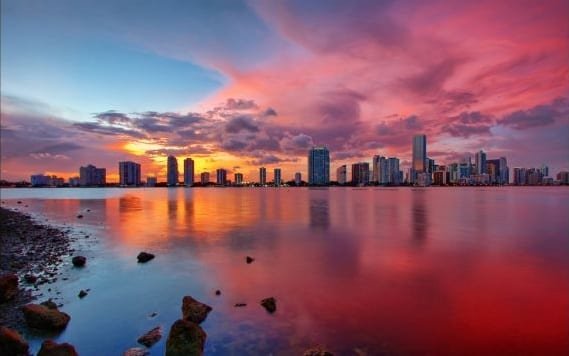Today, Miami approaches a unique place in its 123 year history. We stand at a crossroads, blinded by the bright horizon of tomorrow, at the same time, distracted by a forlorn disfigured definition of our past. Do we move forward, in the name of progress, unity and culture? Or do we continue to feed into pre-conceived, stereotypical labels of our identity?
One must have context. The rest of the country does not take Miami seriously. We’re still viewed as a disorganized, drug-fueled, celebrity-obsessed, vacation spot, akin to Ibiza or Las Vegas.
People think we’re shallow, corrupt, filled with haters, Ed Hardy douchebags, and leftover cliché’s from the ‘80s; a culture of transience, meaningless sex, House music and $16 drinks.
We’re South Beach to 95 percent of the world.
Breaking News
Miami is not South Beach.
Ninety-five percent of the people who live in Miami do not live nor barely even go to South Beach. If it’s not South Beach, we’re viewed as a gateway into Latin America and its chaotic politics. Not many on the outside truly appreciate Miami’s cultural renaissance, partly due to millions of dollars entering our bloodstream from art-based foundations and grants, partly due to real-estate visionaries, but mainly due to a maturing of our multi-cultural ways. We’re growing.
Miami needs to push back against any definition from the outside.
We must re-define ourselves, for ourselves, by ourselves — if not — we allow ourselves to be defined by our past, our freaks and reprobates, and worst of all, to be defined by outsiders.
Part of the problem we have when it comes to evolving out of a stale reputation is that we so often feed into it. It’s such a trap, and so easy to avoid, yet we cultivate it. Rather than highlighting our cultural and intellectual aspects, we literally choose to shine a spotlight on our weirdness.
Do you think nut jobs, freaks, rogues, frauds, rascals, bullies, bogus alms-seekers, counterfeiters, vagrants, and loons don’t exist in New York? How about San Francisco? Chicago? Is Miami the only city in the country with woven tales of debauchery, sin, callousness and zany stupidity?
Maybe it’s seeing the glass half-full vs. half-empty, but if we choose to highlight our accomplishments, as insiders of our own city, from an intellectual point-of-view, we will succeed in defining ourselves for ourselves. Or, we can continue to take the easy way out; we can choose to feed and amplify stereotypes and stay stuck in a twentieth-century clichéd view of Miami.


